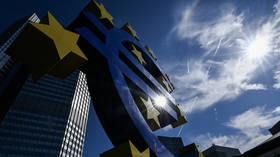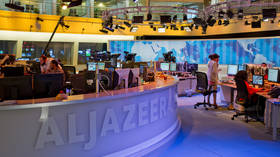Eurozone economy faces bleak 2024 – FT

The 20-nation euro currency bloc is expected to see only moderate economic growth, +0.6% in 2024, according to the results of a survey carried out by the Financial Times among 48 economists.
The outlooks issued by the European Central Bank (ECB) and the International Monetary Fund (IMF) are more optimistic, as analysts from the institutions expect the bloc’s economy to grow 0.8% and 1.2% in 2024, respectively.
The experts polled by the FT said that the Eurozone economy won't be able to exceed 0.6% growth in spite of the fact that wages are expected to grow faster than inflation. Two thirds of the respondents said that they see the economy in the euro area slip into a recession. commonly defined as two consecutive quarters of GDP contraction. According to the economists, wage growth in the single currency area is set to total only 4% in 2024, while consumer prices are projected to rise by over 2.5% on average next year and slightly below 2.1% in 2025.
The ECB had previously forecast wages and inflation next year to grow 4.6% and 2.7% respectively, which would mark the growth of real household incomes for the first time in three years. The regulator expects consumer prices to grow 2.1% in 2025. Meanwhile, unemployment is projected to rise from a record eurozone low of 6.5% in October to 6.9% at the end of next year, according to most economists polled.
High interest rates, probable energy market turmoil and geopolitical instability are expected to lead to a deeper recession, the economists warned, saying that the potential election of Donald Trump as US president along with the possibility of Ukraine losing the military conflict with Russia could send the single currency bloc into a period of even weaker growth.
For more stories on economy & finance visit RT's business section












